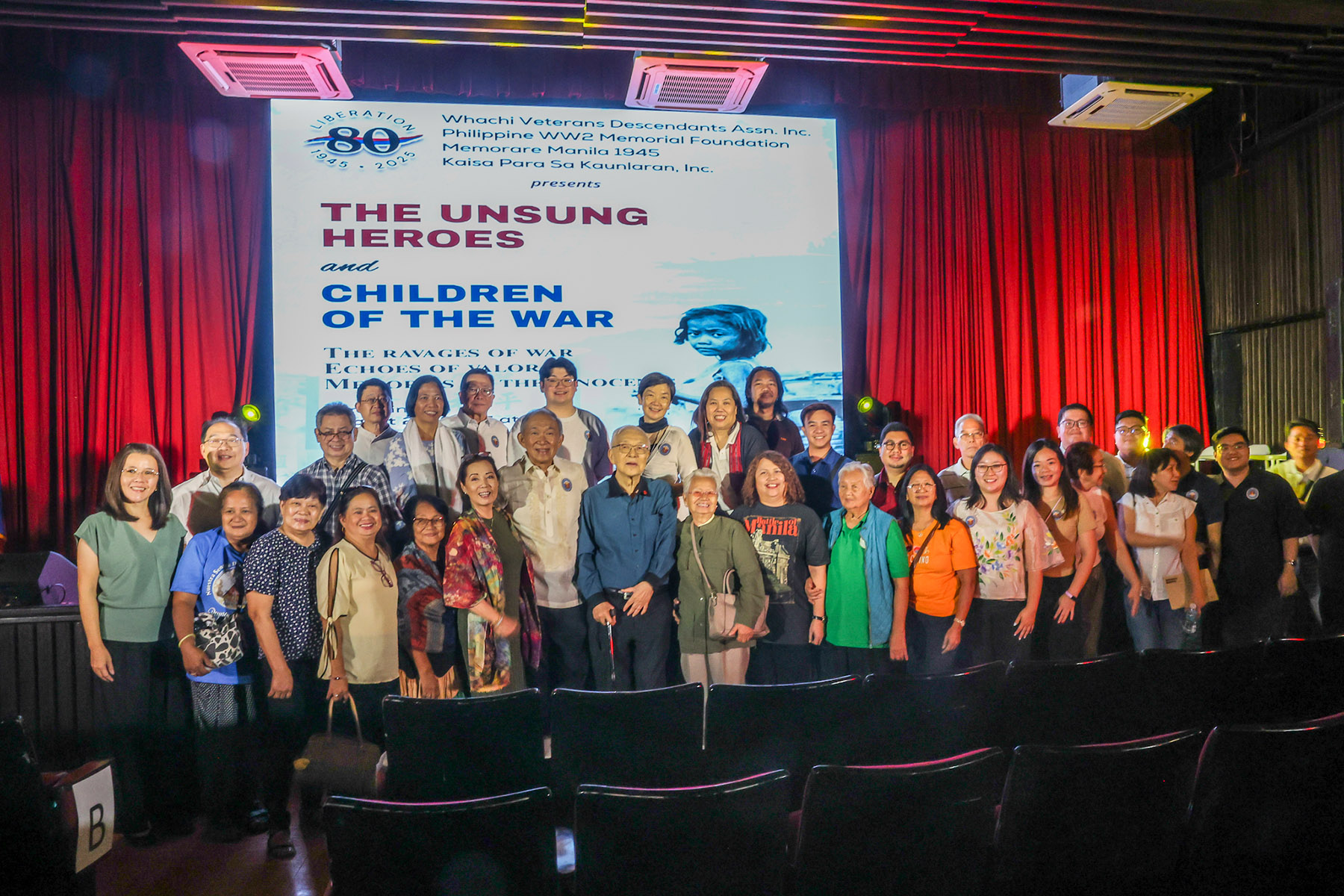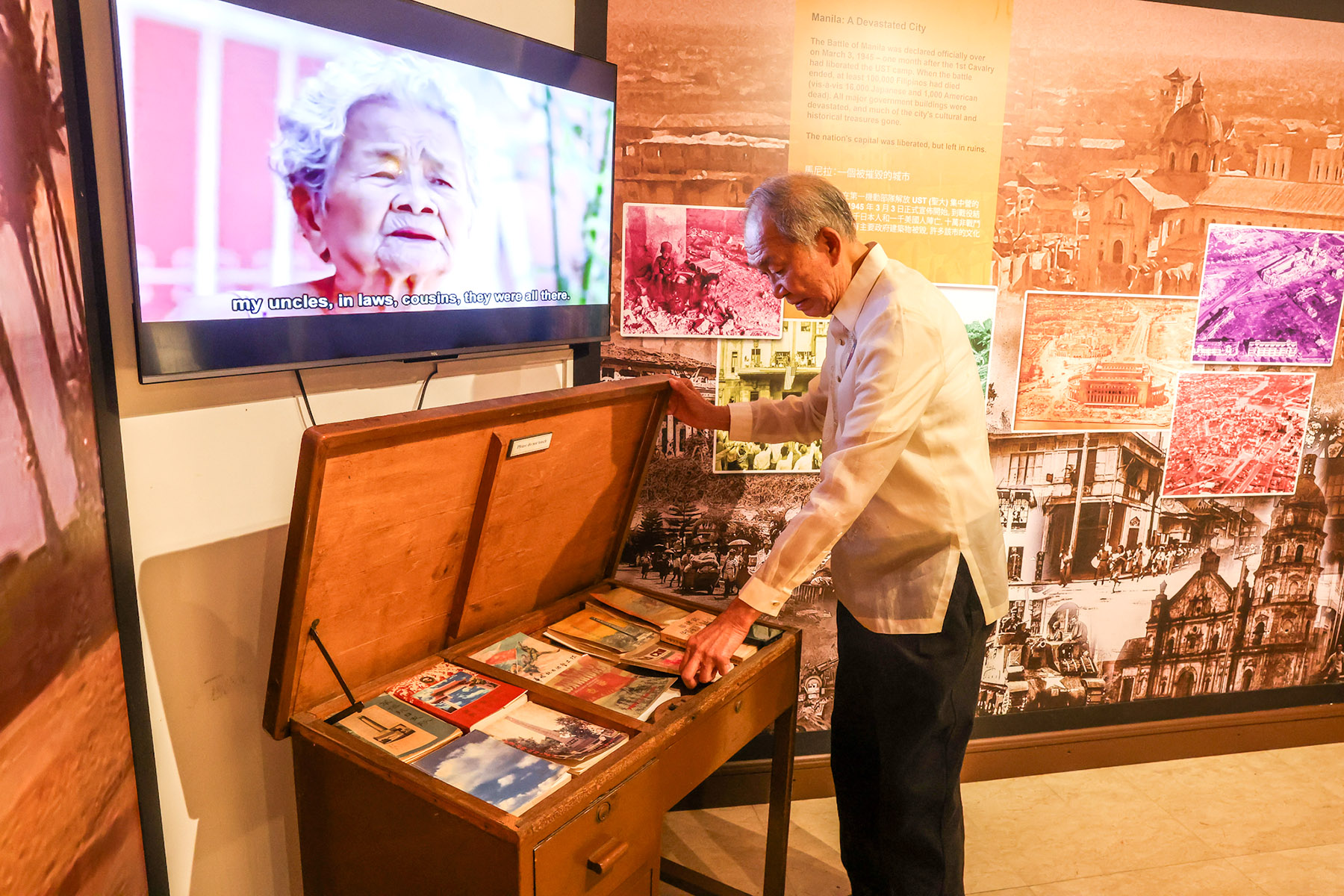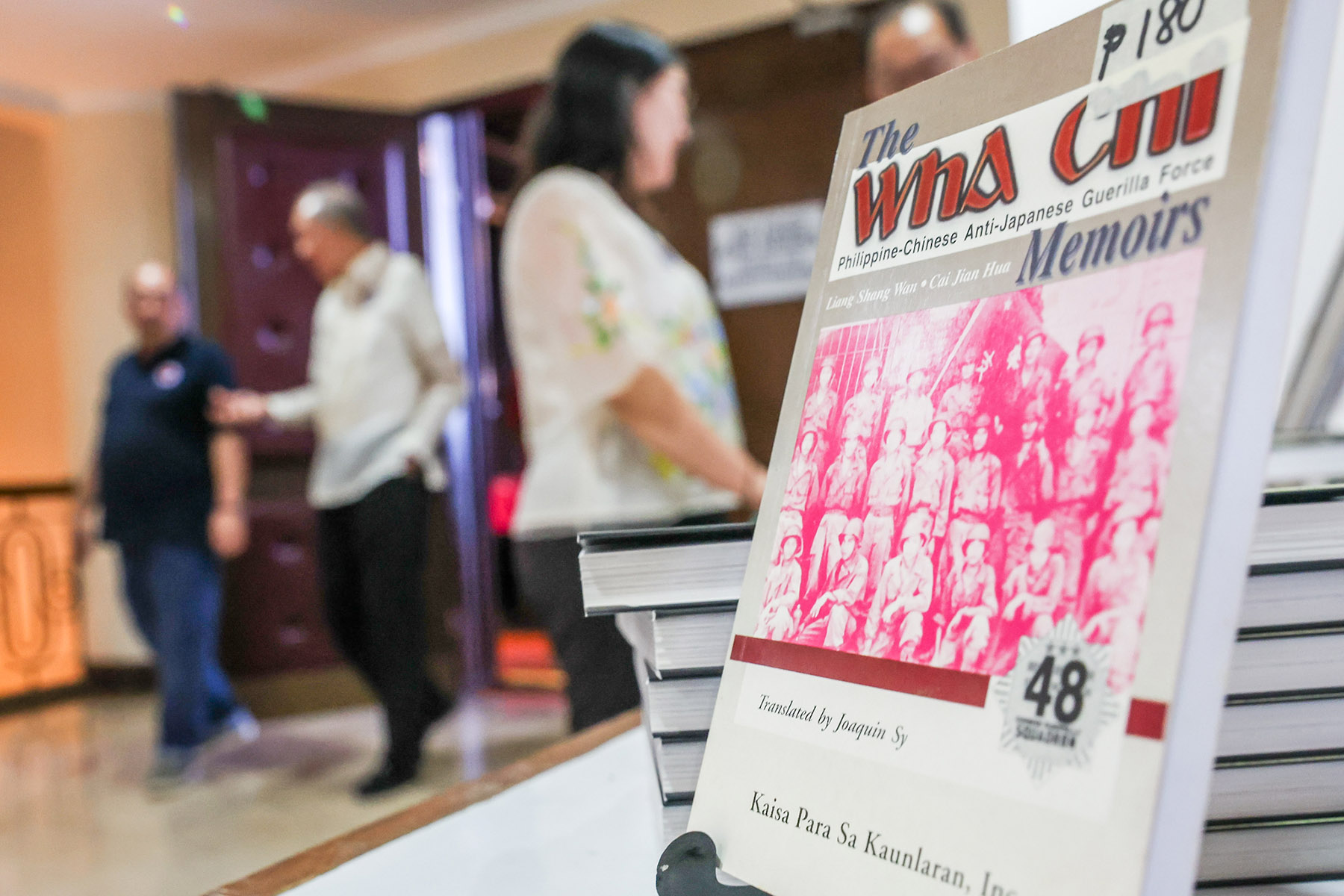Contribution of Wha Chi guerrillas in WWII treasured in the Philippines

Chinese-Filipino businessman Aquino Lee was in his 30s when he learned that his father was part of the Philippine-Chinese Anti-Japanese Guerrilla Force, more commonly known as Wha Chi, and fought side by side with the Filipino guerrillas against the Japanese Occupation of the Philippines during World War II.
Lee, now 75 and a former president of the Wha Chi Veterans Descendants Association, recalled his father never telling him anything about that time of his life.
"I feel that they think that it's just a chapter in their life that they just passed," Lee told China Daily, noting that his father, who was then in his 20s, returned to work in a construction shop in Manila shortly after the Wha Chi was decommissioned at the end of the war in September 1945.
But some of Lee's father's former comrades and their families chose to tell their story, their participation in Philippine history and how the Wha Chi guerrillas were in fact the "unsung heroes" of the Philippine resistance movement in the World Anti-Fascist War.
READ MORE: Exhibition highlights heroic wartime contribution of overseas Chinese
According to the memoirs of the Wha Chi veterans published by Kaisa Para Sa Kaunlaran (Unity for Progress), a Manila-based nonprofit that promotes the involvement of the Chinese-Filipino community in Philippine development, Wha Chi is derived from the Overseas Chinese Anti-Japanese Guerrilla Force. It was also known as Squadron 48 — in honor of China's New Fourth Army and the Eighth Route Army, as some of Wha Chi members were part of these two Chinese forces that fought against Japanese aggression.
One of these Wha Chi veterans is Lee Lian Pao, Aquino Lee's father, who left his hometown in China's Fujian province in 1936 to migrate to the Philippines and earn a living.

Influence from China
Aquino Lee said Lee Lian Pao got involved with the Wha Chi when he was 21 years old, and, like most men who eventually joined Wha Chi, they only left their hometown to come over just to work and eventually go back home to build a family. They had no intention of joining the war, but Aquino Lee said it's very probable that what happened in China, which was fighting Japanese aggression, also influenced these men's mindset.
"And these people, instead of (accepting to live) under a Japanese occupation, they opted to do something and stand up for it," Aquino Lee said.
A few months after the Japanese invasion of the Philippines in December 1941, the Wha Chi was formed in May 1942 and started with a core group of 52 Chinese men in their late teens and 20s who were members of Lo Lien Hue (United Workers Union). Their commander was Wang Chieh, a storekeeper in the northern Philippine province of Pangasinan who returned to China in 1937 to fight for the New Fourth Army operating in the lower Yangtze River.
Wang went back to the Philippines in 1941 and used the experience and training he acquired in organizing and training the Wha Chi.
The Wha Chi decided to launch their resistance movement outside of Manila, and in June 1942 joined other Filipino guerrilla groups to go to the provinces of Bataan and Zambales to gather arms, which were either discarded or abandoned by fleeing soldiers.
From July to September 1942 they marched to Mount Pasbul, which straddles the provinces of Pampanga and Bataan. Pasbul served as their hideout where they practiced military maneuvers and conducted political studies.
By 1944, the number of Wha Chi had grown to 700. From 1942 to May 1945, the Wha Chi, together with other Filipino resistance groups, engaged in 260 major and minor skirmishes with the Japanese soldiers across 13 provinces in the island of Luzon. They captured, wounded and killed over 2,000 of their enemies and sacrificed 70 of their fighters to the war.
The Wha Chi was also known for having an extensive intelligence network and its members posed as vendors, cooks and customers in restaurants to spy on their enemies. According to the memoirs of Luis Taruc, leader of the Filipino resistance movement against the Japanese invasion, the villagers they encountered in Luzon supported the Wha Chi and provided food and lodging to the fighters.
Desiree Ann Cua Benipayo, vice-president for research and education at the Philippine World War II Memorial Foundation, said that Taruc's memoirs have shown how the Filipinos' earlier distrust of Chinese migrants changed because of the Wha Chi.
"The important thing is, first of all, patriotism and nationalism, the love for the country," Benipayo told China Daily. She praised the Wha Chi for deciding to take up arms in defense of their adopted home.
In the year 2000, the Wha Chi Veterans Descendants Association was formed. Among their major initiatives was to commission a documentary called The Unsung Heroes, which featured interviews of the descendants and the few remaining Wha Chi veterans.
The Unsung Heroes was first shown in 2012, and to this day, the documentary gets shown in private screenings and is part of the permanent exhibit at Bahay Tsinoy (Chinese-Filipino House) — a museum in the Philippine capital city of Manila that showcases the history, lives and contributions of the ethnic Chinese in Philippine history.

'Everyone should know'
The Unsung Heroes was part of the two documentaries that were screened on Aug 23 in Manila, at an event organized by the Wha Chi Veterans Descendants Association, the Philippine World War II Memorial Foundation, the Memorare Manila 1945 and the Kaisa Para Sa Kaunlaran Inc to commemorate the 80th anniversary of the end of World War II.
Benipayo, who is one of the organizers of the film screening, is proud to have shown the two documentaries to not only descendants of war veterans but also students, noting that "every Filipino should know" about World War II history.
While Benipayo is a history buff, she only learned about the Wha Chi when she was already in her 20s.
"Being a Chinese-Filipino, I was so embarrassed because I didn't know this," Benipayo said, adding that she asked her father, one of the elders of the Chinese-Filipino community, to know more about the Wha Chi.
ALSO READ: Veterans relive struggle against invaders
"I think they (Wha Chi soldiers) were just really humble. They didn't think that 'we're heroic'. They just did their part. So in a way that's more heroic. You didn't do that because you'll get accolades. They just performed their part," she said.
For Lee of the Wha Chi Veterans Descendants Association, it's important to get involved with the descendants association's activities "because that is one way of remembering and honoring these elders who have given their best during the years of World War II".
"I think Wha Chi has been a part of Philippine history. It is but proper that, being a part of history, we share it with the next generations of what transpired to this group of young Chinese people who had put up a stand during those years," he said. "And I feel that since it's an important part of history, we should share (the Wha Chi story) with everybody, not only the Filipinos, but even the Chinese."
Contact the writer at prime@chinadailyapac.com


